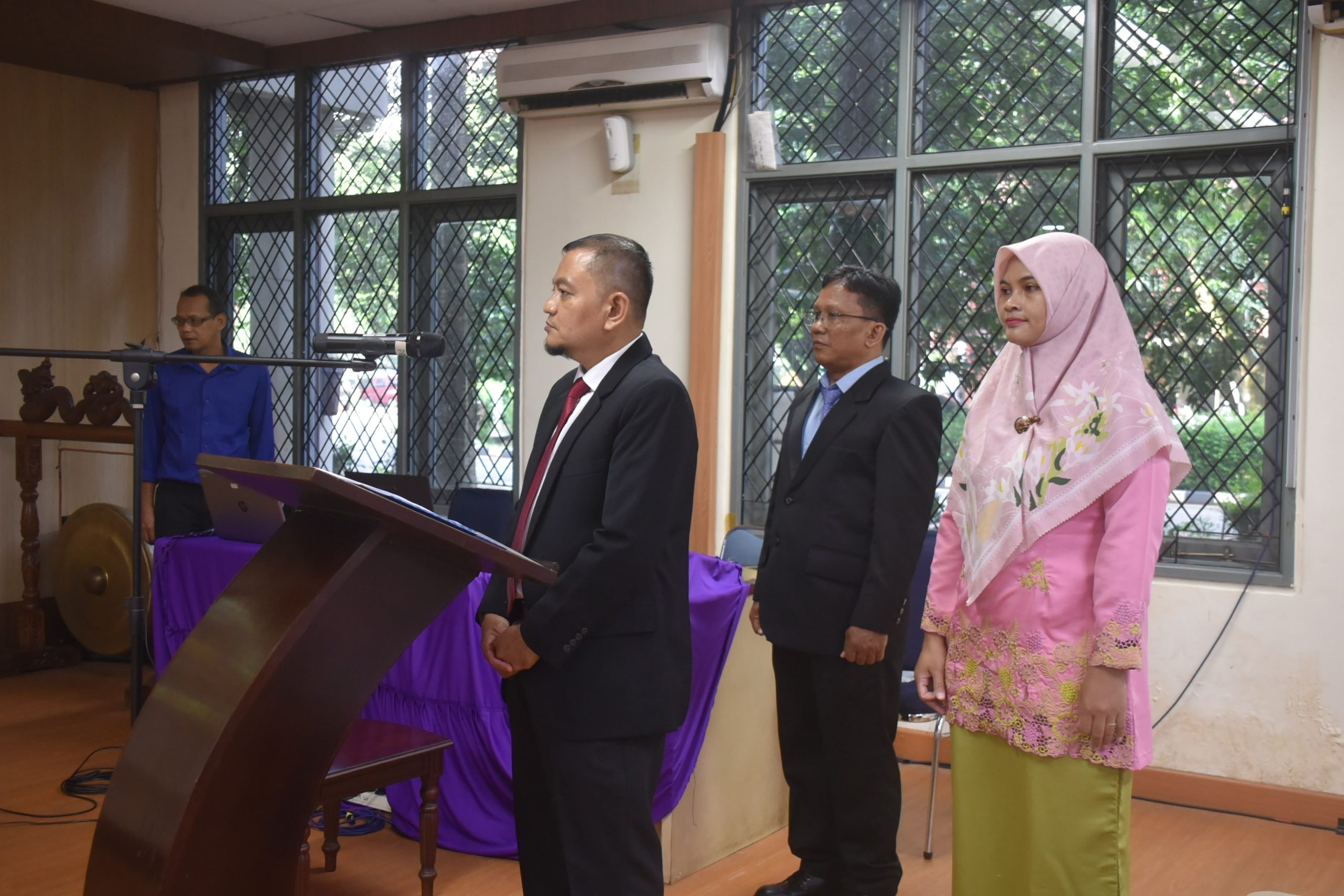The Faculty of Public Health (FPH) at the University of Indonesia (UI) has once again awarded a doctoral degree in Epidemiology. On 25 June 2025, Muammar Muslih successfully defended his dissertation, titled “Measles–Rubella Immunization Resilience Model for Regencies/Cities in Indonesia in 2022–2023”, during the open doctoral promotion session held in the Doctoral Promotion Room, G Building, FPH UI.
Presiding over the session was Prof. dr. Mondastri Korib Sudaryo, M.S., D.Sc., who also served as the chief examiner. Muammar was supervised by Dr. Tri Yunis Miko Wahyono, M.Sc. (promotor), with Prof. dr. Irawan Mangunatmadja, Sp.A(K), and Dr. Masdalina Pane, S.K.M., M.Kes., M.Si(Han) as co-promotors. The examination committee also included scholars such as Prof. Tris Eryando, Prof. Ede Surya Darmawan, Prof. Elisabeth Siti Herini, and Dr. Soewarta Kosen.
Indonesia ranks among the top ten countries with the highest measles incidence globally. The number of regencies/cities reporting cases rose from 118 in 2019 to 250 in 2022—an alarming increase tied to low immunization coverage. Muammar’s research highlights the critical importance of immunization system resilience in strengthening primary health care to combat measles–rubella outbreaks.
Utilizing a multilevel ecological cross-sectional design, the study analyzed data from 257 regions reporting at least one IgM-positive case during 2022–2023. Findings showed 60.7% of cases occurred among children aged 0–5, 51.3% were female, and 67% had incomplete MR2 vaccinations. Notably, 67.7% of cases were in areas deemed immunization-vulnerable, despite high suspicion awareness (99.6%).
Key factors influencing immunization resilience included coverage levels, immunization funding, program performance, trained staff availability, and surveillance systems. “Regional immunization coverage forms the cornerstone of resilience and local capacity to prevent and control measles–rubella spread,” Muammar explained. At the individual level, completion of MR2 vaccination significantly boosted regional resilience—most cases occurred among under-vaccinated young children.
Based on these insights, Muammar recommends that local governments actively assess immunization resilience in their jurisdictions. Identifying weak indicators will allow for targeted interventions. “Data-driven evaluations of immunization resilience are crucial to meeting Indonesia’s measles–rubella elimination goal by 2026,” he stated. Enhancing human resources—especially in immunization and surveillance—through continuous training is essential. He also urges optimal use of Health Operational Funds (BOK) to ensure effective immunization programs. The Ministry of Health is called upon to foster evidence-based policy innovation, emphasizing program performance, stable funding, and rapid response.
Born in 1981 in Jambi, Muammar earned the “Very Satisfactory” distinction with a GPA of 3.83. He becomes the 13th doctoral graduate in Epidemiology from FPH UI in 2025, the 129th overall in the program, and the 462nd doctoral graduate across all UI doctoral programs. His accomplishment is expected to strengthen Indonesia’s immunization system and accelerate measles–rubella elimination nationwide.

